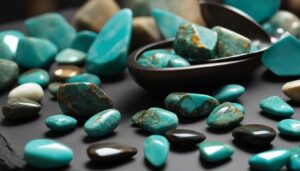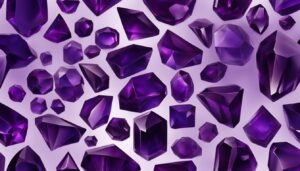It’s not about the quality of the henna, but it’s often discussed whether it has a general negative effect on the hair. I once saw a home video on the net that said that henna makes hair brittle, damages hair, and if used on bleached hair, it breaks them. It is not henna that breaks the hair, but the chemicals used to dye the hair with henna damage the hair.
In general, henna is not bad for your hair. Henna is an ancient pigment that has been sued across many cultures, and it has never acquired a reputation for damaging hair, so this implies its safety. However, some brands place heavy metals in henna to alter the color, and these can damage hair.
To dye hair that has been henna-colored, your hairdresser must use a much stronger and more aggressive chemical to re-open (damage) the cuticle so the dye can seep into the hair. When coating a synthetic dye with henna, there is no need to worry about the chemical interaction between the henna and the synthetic dye, as the henna acts as a dye rather than penetrating into the hair shaft.
Pure Henna Is a Healthy Alternative to Synthetic Dyes
If you are using pure natural henna without chemicals, additives or preservatives, you can dye your hair with synthetic dyes. Or you want to opt for an alternative with a range of chemicals to damage the core of your hair instead of natural henna, that’s up to you.
To protect the health of yourself and your hair, always use the purest henna you can find. For example, don’t try to use henna on hair that’s already chemically dyed, or you could damage it. The most obvious benefit of dyeing your hair with henna is that you can avoid the aforementioned atrocities of harmful chemicals.
There is no point in trying to avoid chemical hair dyes and opt for natural alternatives (i.e. henna) just to incorrectly check labels and buy henna products that contain toxic and non-natural ingredients. While most henna products are natural (with the exception of black henna, which contains cancer-causing chemical additives), the claim that these products are good for hair isn’t true.
Natural Henna Is a Tested Substance
Pure and natural henna contains absolutely no chemicals and thus provides various benefits to the hair and does not harm the hair in any way as it is truly organic. Being 100% organic, natural henna is gentler on skin and hair, although it is recommended to test before use to be completely safe. Henna hair dyes are more delicate and do not destroy the protective layer of the hair shaft, like most dyes and bleaches.
Since henna is of plant origin, unlike traditional hair dyes, henna does not require artificial additives or chemicals to color the hair.
Henna in its natural form is safe to use, and unlike traditional hair dyes, it heals, conditions and rejuvenates the hair and scalp. Henna makes hair healthy; helps fight signs of aging, nourishes hair naturally, cleans scalp and more. It also helps maintain the natural pH of the scalp, thereby strengthening the hair follicles. Henna’s natural nourishing properties make it the perfect ingredient to transform dry, damaged and unhealthy hair into soft, shiny and manageable hair.
Henna Has Some Other Benefits as well
Henna also acts as a natural conditioner due to its nourishing and moisturizing properties, which simultaneously create a protective layer on the hair. 100% pure henna makes hair smoother by strengthening the hair structure with tannin and resisting the elements,” says Katherine Cartwright-Jones. Basically, the FDA says henna is good for hair because it won’t come into contact with the scalp. or other parts of the skin for an extended period of time, if at all.
In fact, the henna that is bad for your hair is black henna, also known as Kali mehndi, or henna with some added chemicals, even in the smallest proportions, black henna. Black henna isn’t technically henna because it’s not a natural plant derivative; instead, it typically contains coal tar, acetone, lighter fluid, turpentine, and PPD (p-phenylenediamine), Martha’s previous hair dye article discussed in this. Some brands of henna contain metal salts, so chemical hair dyes cannot be used.
Pregnant women who have been warned against synthetic dyes may find their ideal hair color in henna. As more and more people become aware of safer ways to dye their hair, henna is replacing standard dyes. A natural and safe alternative for women who want to color their hair without damage or chemicals, henna is a great option. A natural plant-based dye, henna is rapidly gaining popularity as a safe and effective way to cover gray hair and beautifully add color and shine.
Some Brands Spoil Natural Henna
Brands that offer compound henna may contain metal salts and chemical brighteners that can damage hair or react with previous chemical dye. Even hair dyes that claim to be natural can contain chemicals that can cause an allergic reaction, which is why Allergy UK says henna and herbal dyes are the safest options. We do not recommend using hair cleaners or color removers as they are the exact opposite of what you are using henna for.
Using henna on gray hair can be a great way to add tint, though keep in mind that gray strands may not absorb henna as much as other strands as they tend to be coarser. Adding henna to previously chemically colored, bleached or weakened hair covers the chemically colored background, making it thicker and coarser. Henna in its natural form can make hair thicker, stronger, silkier and shinier due to the presence of tannins (a type of plant compound).




